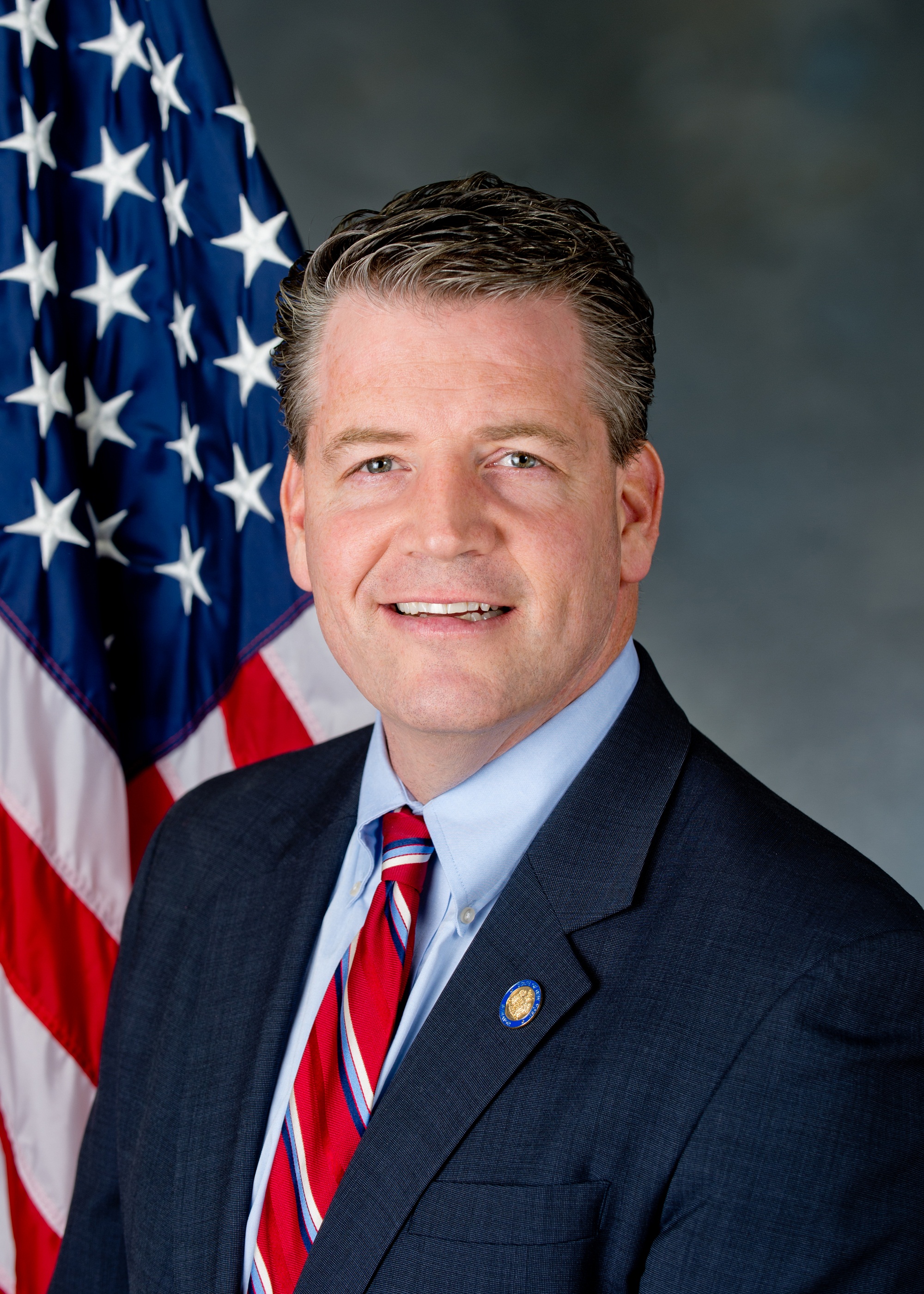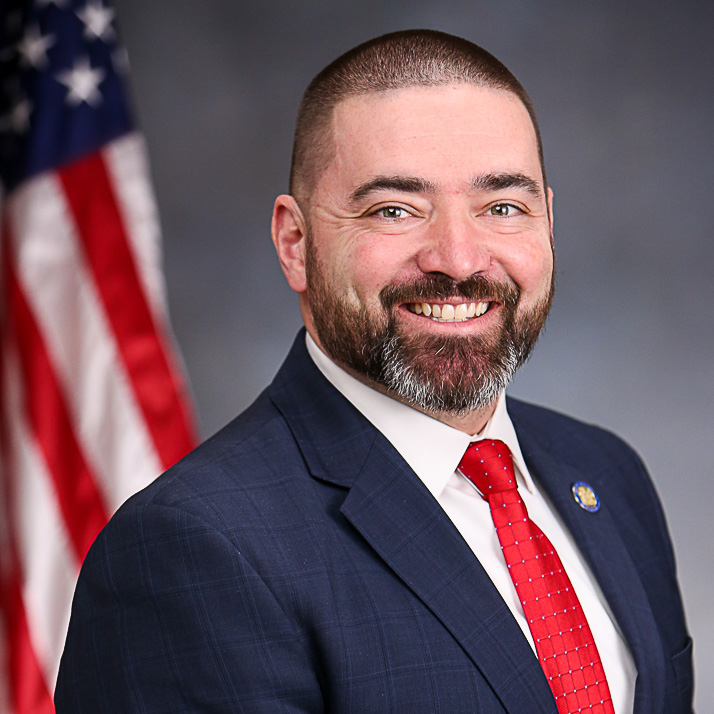S T A T E O F N E W Y O R K
________________________________________________________________________
6322
I N S E N A T E
(PREFILED)
January 6, 2016
___________
Introduced by Sens. RANZENHOFER, FUNKE, HANNON, MURPHY -- read twice and
ordered printed, and when printed to be committed to the Committee on
Alcoholism and Drug Abuse
AN ACT to amend the criminal procedure law, in relation to authorizing
alcohol and substance abuse treatment in another jurisdiction for
defendants in judicial diversion programs or other judicially sanc-
tioned programs
THE PEOPLE OF THE STATE OF NEW YORK, REPRESENTED IN SENATE AND ASSEM-
BLY, DO ENACT AS FOLLOWS:
Section 1. The opening paragraph of subdivision 1 of section 216.00 of
the criminal procedure law, as amended by chapter 90 of the laws of
2014, is amended to read as follows:
"Eligible defendant" means any person who stands charged in an indict-
ment or a superior court information with a class B, C, D or E felony
offense defined in article one hundred seventy-nine, two hundred twenty
or two hundred twenty-one of the penal law or any other specified
offense as defined in subdivision four of section 410.91 of this chap-
ter[, provided]. A DEFENDANT SHALL NOT BE FOUND INELIGIBLE BECAUSE OF
HIS OR HER RESIDENCY IN ANOTHER JURISDICTION WITHIN THE STATE. PROVIDED,
however, a defendant is not an "eligible defendant" if he or she:
S 2. The opening paragraph of subdivision 1 of section 216.00 of the
criminal procedure law, as added by section 4 of part AAA of chapter 56
of the laws of 2009, is amended to read as follows:
"Eligible defendant" means any person who stands charged in an indict-
ment or a superior court information with a class B, C, D or E felony
offense defined in article two hundred twenty or two hundred twenty-one
of the penal law or any other specified offense as defined in subdivi-
sion four of section 410.91 of this chapter[, provided]. A DEFENDANT
SHALL NOT BE FOUND INELIGIBLE BECAUSE OF HIS OR HER RESIDENCY IN ANOTHER
JURISDICTION WITHIN THE STATE. PROVIDED, however, a defendant is not an
"eligible defendant" if he or she:
S 3. Subdivisions 5 and 8 of section 216.05 of the criminal procedure
law, subdivision 5 as amended by chapter 258 of the laws of 2015 and
EXPLANATION--Matter in ITALICS (underscored) is new; matter in brackets
[ ] is old law to be omitted.
LBD13149-02-5
S. 6322 2
subdivision 8 as amended by chapter 347 of the laws of 2012, are amended
to read as follows:
5. The defendant shall agree on the record or in writing to abide by
the release conditions set by the court, which, shall include: partic-
ipation in a specified period of alcohol or substance abuse treatment at
a specified program or programs identified by the court, SUCH PROGRAM OR
PROGRAMS MAY BE LOCATED IN ANOTHER JURISDICTION WITHIN THE STATE IF THE
DEFENDANT RESIDES IN SUCH OTHER JURISDICTION AND SUCH PROGRAMS ARE
AVAILABLE AND APPROVED BY THE COURT AND THE JUDICIAL DIVERSION PROGRAM,
which may include periods of detoxification, residential or outpatient
treatment, or both, as determined after taking into account the views of
the health care professional who conducted the alcohol and substance
abuse evaluation and any health care professionals responsible for
providing such treatment or monitoring the defendant's progress in such
treatment; and may include: (i) periodic court appearances, which may
include periodic urinalysis; (ii) a requirement that the defendant
refrain from engaging in criminal behaviors; (iii) if the defendant
needs treatment for opioid abuse or dependence, that he or she may
participate in and receive medically prescribed drug treatments under
the care of a health care professional licensed or certified under title
eight of the education law, acting within his or her lawful scope of
practice.
8. During the period of a defendant's participation in the judicial
diversion program, the court shall retain jurisdiction of the defendant,
provided, however, that the court may (I) allow such defendant to reside
in another jurisdiction while participating in a judicial diversion
program WITHIN THE JURISDICTION WHERE THE DEFENDANT IS CHARGED UNDER
CONDITIONS SET BY THE COURT AND AGREED TO BY THE DEFENDANT PURSUANT TO
SUBDIVISIONS FIVE AND SIX OF THIS SECTION OR (II) ALLOW SUCH DEFENDANT
TO RESIDE IN ANOTHER JURISDICTION WITHIN THE STATE AND COMPLETE ALCOHOL
OR SUBSTANCE ABUSE TREATMENT WITHIN SUCH OTHER JURISDICTION AS PART OF
THE JUDICIAL DIVERSION PROGRAM under conditions set by the court and
agreed to by the defendant pursuant to subdivisions five and six of this
section. The court may require the defendant to appear in court at any
time to enable the court to monitor the defendant's progress in alcohol
or substance abuse treatment. The court shall provide notice, reasonable
under the circumstances, to the people, the treatment provider, the
defendant and the defendant's counsel whenever it orders or otherwise
requires the appearance of the defendant in court. Failure to appear as
required without reasonable cause therefor shall constitute a violation
of the conditions of the court's agreement with the defendant.
S 4. The criminal procedure law is amended by adding a new article 217
to read as follows:
ARTICLE 217
ALCOHOL OR SUBSTANCE ABUSE TREATMENT IN ANOTHER JURISDICTION
SECTION 217.00 ALCOHOL OR SUBSTANCE ABUSE TREATMENT IN ANOTHER JURISDIC-
TION.
S 217.00 ALCOHOL OR SUBSTANCE ABUSE TREATMENT IN ANOTHER JURISDICTION.
1. NOTWITHSTANDING ANY OTHER LAW, RULE OR REGULATION TO THE CONTRARY,
WHERE A DEFENDANT HAS BEEN GRANTED PARTICIPATION IN A JUDICIAL DIVERSION
PROGRAM UNDER ARTICLE TWO HUNDRED SIXTEEN OF THIS CHAPTER, OR ANOTHER
JUDICIALLY SANCTIONED PROGRAM THAT REQUIRES ALCOHOL OR SUBSTANCE ABUSE
TREATMENT, AND THE DEFENDANT RESIDES IN ANOTHER JURISDICTION WITHIN THE
STATE WHERE ALCOHOL OR SUBSTANCE ABUSE TREATMENT IS AVAILABLE AND SUCH
TREATMENT IS APPROVED BY THE COURT AND THE JUDICIAL DIVERSION PROGRAM OR
OTHER JUDICIALLY SANCTIONED PROGRAM, THE COURT, WHILE RETAINING JURIS-
S. 6322 3
DICTION OF THE DEFENDANT, MAY ALLOW SUCH DEFENDANT TO RECEIVE ALCOHOL OR
SUBSTANCE ABUSE TREATMENT IN THE JURISDICTION WHERE THE DEFENDANT
RESIDES AS PART OF THE JUDICIAL DIVERSION PROGRAM OR JUDICIALLY SANC-
TIONED PROGRAM UNDER CONDITIONS SET BY THE COURT AND AGREED TO BY THE
DEFENDANT. A DEFENDANT'S RESIDENCY IN ANOTHER JURISDICTION SHALL NOT
PREVENT HIS OR HER PARTICIPATION IN A JUDICIAL DIVERSION PROGRAM OR
OTHER JUDICIALLY SANCTIONED PROGRAM IN THE JURISDICTION WHERE THE
DEFENDANT IS CHARGED.
2. AS A CONDITION OF THE DEFENDANT'S PARTICIPATION IN THE JUDICIAL
DIVERSION PROGRAM OR OTHER JUDICIALLY SANCTIONED PROGRAM, THE COURT MAY
REQUIRE THE DEFENDANT TO APPEAR IN COURT AT ANY TIME TO ENABLE THE COURT
TO MONITOR THE DEFENDANT'S PROGRESS IN ALCOHOL OR SUBSTANCE ABUSE TREAT-
MENT. THE COURT SHALL PROVIDE NOTICE, REASONABLE UNDER THE CIRCUM-
STANCES, TO THE PEOPLE, THE TREATMENT PROVIDER, THE DEFENDANT AND THE
DEFENDANT'S COUNSEL WHENEVER IT ORDERS OR OTHERWISE REQUIRES THE APPEAR-
ANCE OF THE DEFENDANT IN COURT. FAILURE TO APPEAR AS REQUIRED WITHOUT
REASONABLE CAUSE THEREFOR SHALL CONSTITUTE A VIOLATION OF THE CONDITIONS
OF THE COURT'S AGREEMENT WITH THE DEFENDANT.
S 5. This act shall take effect immediately, provided that the amend-
ments to the opening paragraph of subdivision 1 of section 216.00 of the
criminal procedure law made by section one of this act shall be subject
to the expiration and reversion of such subdivision pursuant to section
4 of part AAA of chapter 56 of the laws of 2009, as amended, when upon
such date the provisions of section two of this act shall take effect.












